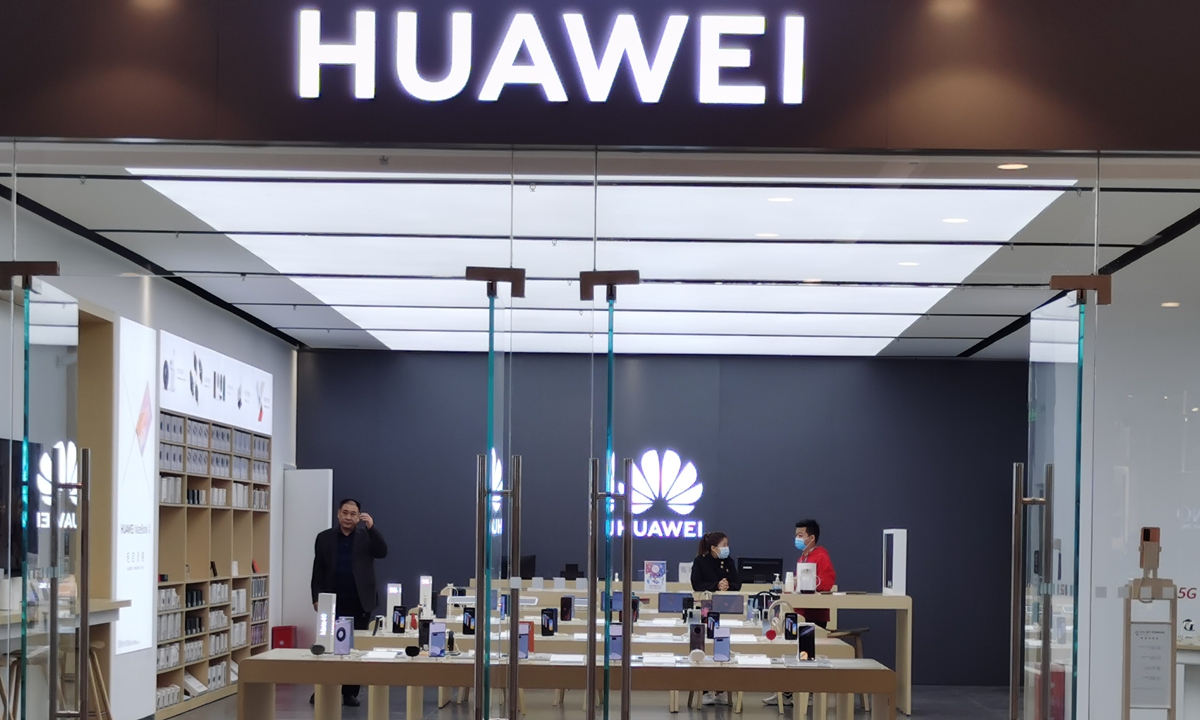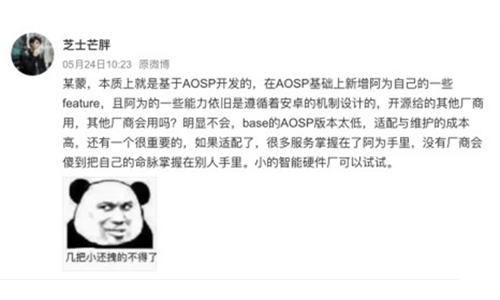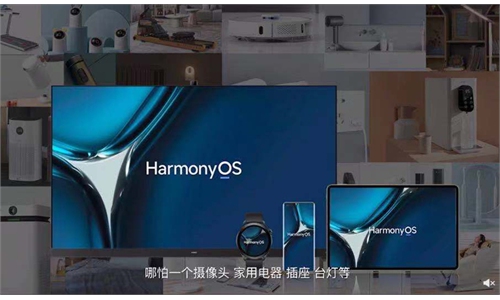
A view of a Huawei store in Central China's Henan Province in November 2020 Photo: cnsphoto
Huawei's hardware and software users welcomed Huawei's newly launched self-developed HarmonyOS for smartphones, with many express expectations for the new operating system. However, some users showed hesitation on whether they should install the new system.
Many net users on China's social media platform Sina Weibo shared their experiences of using the new HarmonyOS, with some posting tips on how to upgrade their operating system.
A Shanghai-based Huawei Mate 40 Pro user surnamed Liu told the Global Times that he couldn't wait to upgrade the operating system to the latest version of HarmonyOS launched on Wednesday night. "The fluency has been apparently improved. Existing apps can still be used," he said.
However, a Beijing-based Huawei smartphone user surnamed Wang told the Global Times that he is hesitant to upgrade existing operating system because he fears that the apps that he uses on his phone are not compatible to HarmonyOS, and he is also concerned that there could be some bugs.
Liu Dingding, an independent tech analyst, who has tried HarmonyOS-backed Huawei smart TV, told the Global Times that he thinks the new operating system could easily beat Google's Android or Apple's iOS in fluency and all-scenario applications.
Huawei's HarmonyOS will provide a revolutionary software platform that works across devices and home appliances, capable of passing digital files between phones, tablets, TVs, computers instantly. The system is set to accelerate the arrival of the IoT age, Chinese industry experts said.
During the launch event on Wednesday, Huawei revealed a range of smartphones, smart watches, and tablets powered by its new HarmonyOS 2.0 operating system, including a new version of the HUAWEI Mate 40 Series and HUAWEI Mate X2, the HUAWEI WATCH 3 Series, and the HUAWEI MatePad Pro.
Over 100 types of Huawei devices can be upgraded to HarmonyOS 2.0 through the first quarter of 2022.
Huawei said that about 300 million smart devices will be installed with HarmonyOS by the end of 2021, with about 200 million being Huawei-made devices.
"Huawei's challenge has just started," Liu said, adding it is difficult to build an ecosystem based on the HarmonyOS which relies on millions of app developers and hundreds of millions of end users.
Whether Huawei can successfully build a HarmonyOS ecosystem mainly depends on the positioning of the operating system - a defensive product against US government crackdown or a product of revolutionary innovations, Liu said.


